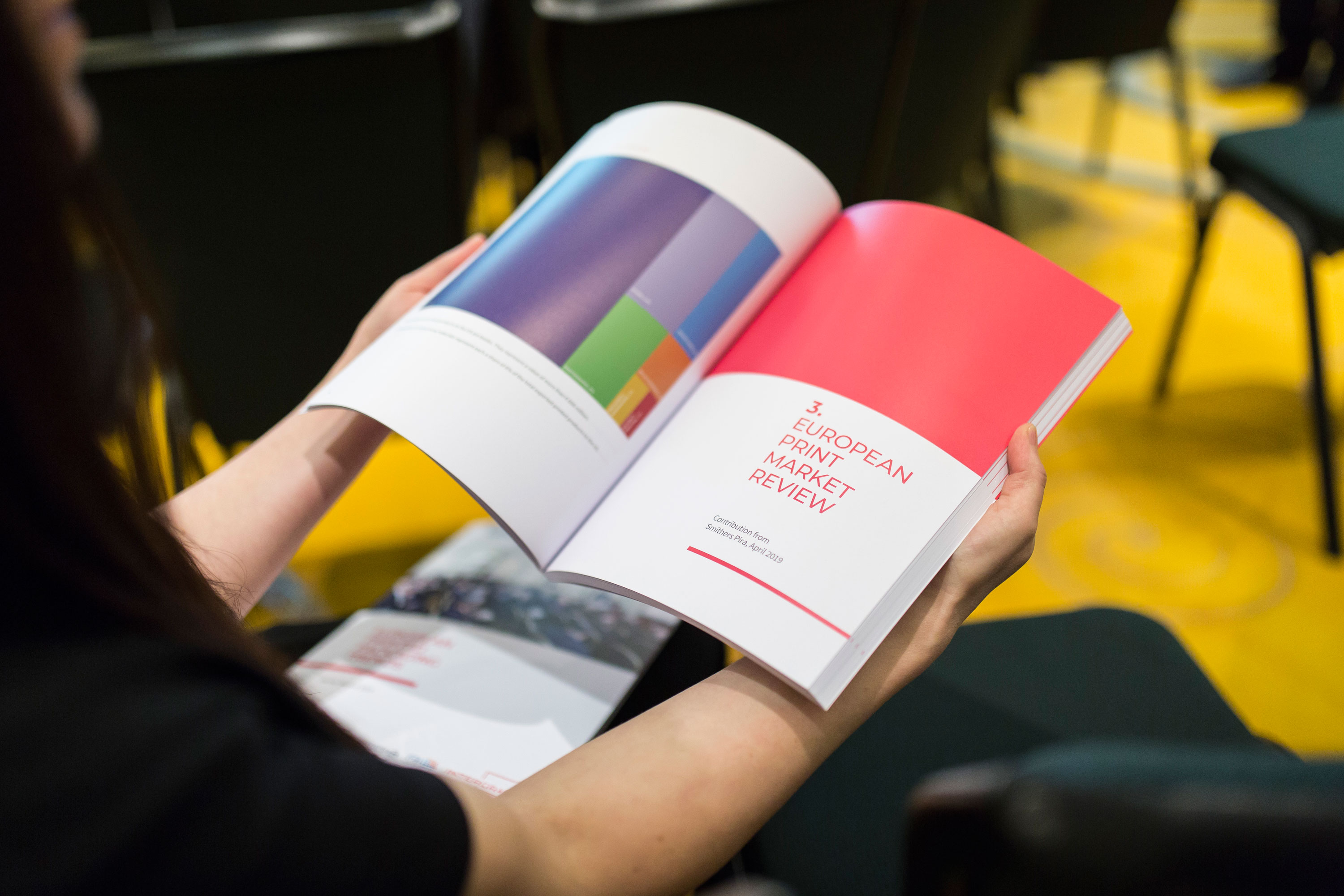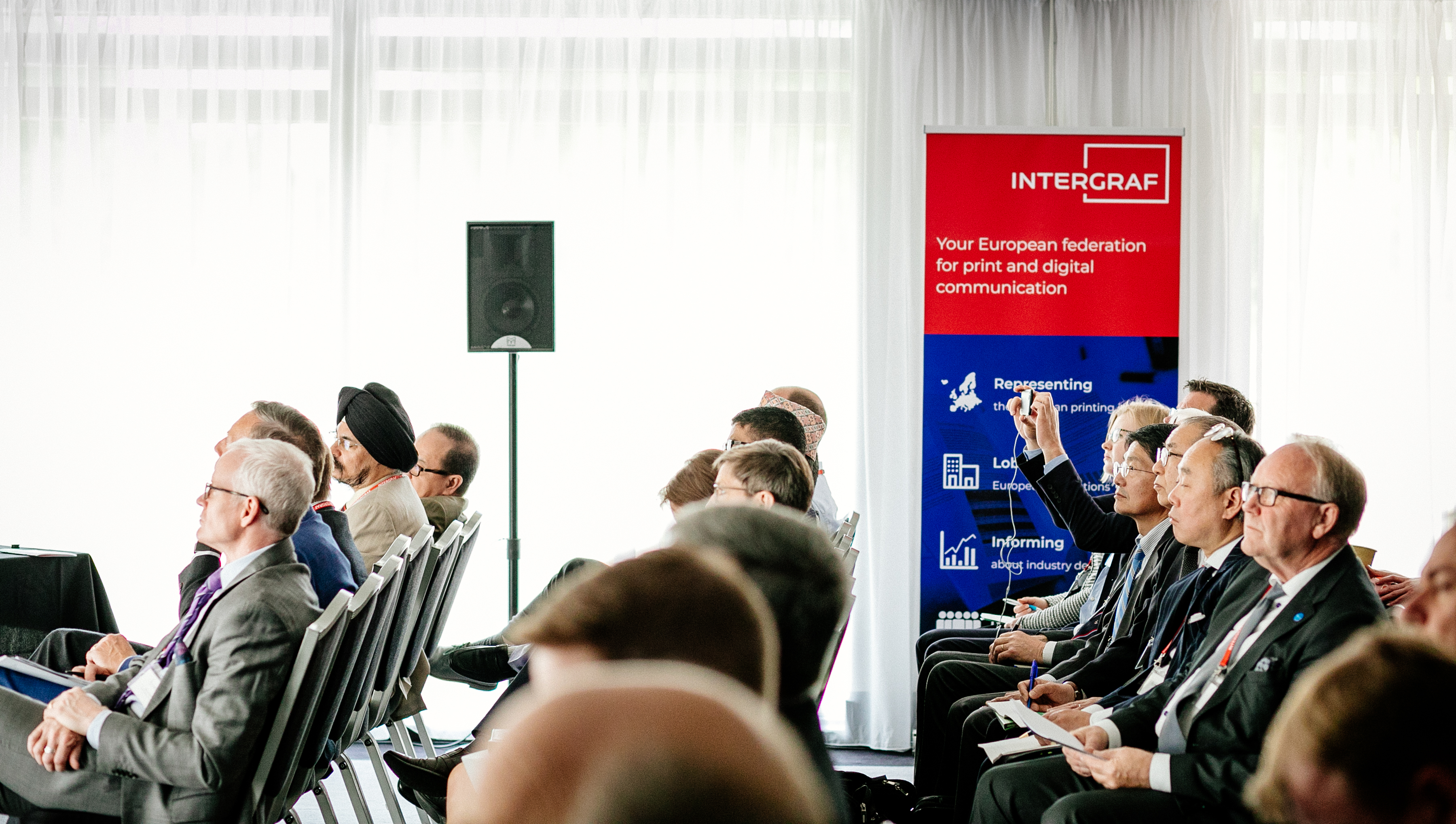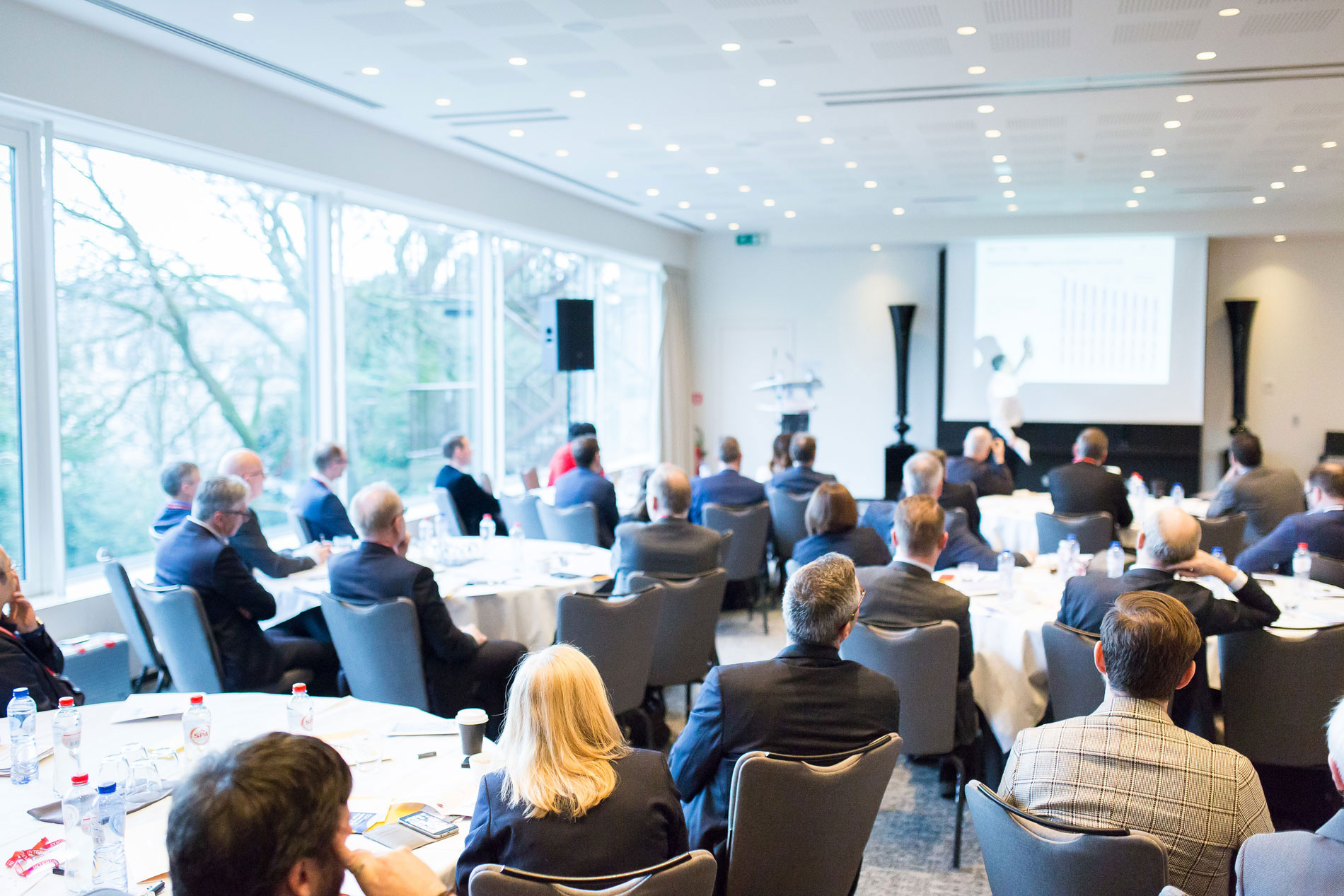HIGHLIGHTS: PRINT MATTERS 2025 CONFERENCE CONCLUDES IN ZURICH
19 June 2025
The latest edition of the Print Matters conference brought together an impressive gathering of more than 100 industry professionals from over 27 countries. Co-organised by Intergraf and NOPA, and with participation of the World Print & Communication Forum (WPCF), the event took place on June 13, 2025, in Zurich, Switzerland.
This annual event once again served as a platform for industry leaders to connect and explore the latest developments and prospects of the graphic industry. Representatives of national printing associations, printers, suppliers, and high-level speakers and delegates from across the world and beyond gathered to share insights, expertise, and forward-thinking strategies.
The 2025 edition fostered engaging discussions on the most pressing challenges and opportunities for the sector, with focused sessions on business development, sustainability, industry outlook, and security. Participants exchanged views on the implications of AI-driven production, industry consolidation through acquisitions, and efforts to attract the next generation of print professionals.
The conference also featured hands-on insights into regulatory compliance with the European Deforestation Regulation (EUDR) and a ClimateCalc case study on environmental impact. A panel of suppliers debated the future of print and assessed ongoing market shifts and the effectiveness of print advertising in a changing media landscape. Additionally, a session on cybersecurity in newspaper production and paper supply chain developments addressed key security concerns for the industry.
Print Matters 2025 confirmed the industry's continued commitment to innovation, collaboration, and sustainability—and its vital role in the evolving communications ecosystem.
The conference was moderated by Ulrich Stetter, President of Intergraf and Managing Director of Druckhaus Mainfranken GmbH, and Håvard Grjotheim, President of NOPA and Working Chairman of Scandbook Holding AB.
Vince Bang, Executive Chairman at Mattenbach AG, presented a session on strategic growth through acquisitions in the Swiss printing market. He outlined how acquisitions can serve as powerful growth drivers, especially in Switzerland's stable legal and economic environment. He shared a four-step acquisition framework and a case study underscoring the need for strong leadership, cultural fit, and clear direction after acquisition.
Tobias Kaase, CEO of mediaprint solutions GmbH, delivered a clear message: adapt or become obsolete. He stressed that digital printing, e-commerce, and optimisation are now baseline expectations. Looking to 2030, he highlighted smart printing driven by AI and digitalisation as key to staying relevant and adding value to clients' evolving business models.
Sarah Schumacher, winner of the Intergraf Young Talent Award 2025, elaborated on how to attract young people to the industry. Her core message: strategy starts with how we communicate print’s value. She urged clear messaging, stronger ties with universities, and early outreach, highlighting that the future of print depends on inspiring the next generation.
Laetitia Reynaud, Senior Policy Advisor at Intergraf, outlined the upcoming European Deforestation Regulation (EUDR) and its impact on printers. With compliance deadlines approaching, she stressed the need for early preparation. She was joined by Katarzyna Rybicka, Vice President of Strategy, Finance & Transformation at Walstead, who highlighted how printers are stepping in to support confused customers, underscoring the call for clearer rules and better communication across the value chain. Katarzyna also shared results from a three-year research project on biodegradable retail stands using PLA biopolymers. The result: certified biodegradability within 16 weeks and a scalable model for sustainable retail innovation.
Manuela Teodorescu, General Manager at Paragon, showcased how Paragon Western Europe is managing its carbon footprint through ClimateCalc. Faced with complex emissions across 22 sites and millions of print orders, the company adopted this certified, industry-specific tool aligned with Intergraf’s methodology for greater clarity and control. The outcome includes consolidated emissions data, traceable product-level carbon calculations, and stronger alignment with client sustainability expectations.
Justin Cairns, Head of Offline Production at Ogilvy UK, highlighted how the tactile nature of print shapes consumer perception in ways digital media can't replicate. He explained that we instinctively assign greater value and trust to printed materials, especially when they are well-crafted or costly to produce. In an age dominated by fleeting digital impressions, print offers marketers a rare chance to create meaningful, lasting engagement that resonates more deeply with audiences.
Jennifer Kolloczek, European Planning, Marketing & Innovation Senior Director at Canon, offered a wide-angle view of print’s evolving role amid major societal shifts. Citing futurist insights, she emphasised that while digital continues to expand, print stands out for its ability to capture attention, build trust, and provide physical relevance in a virtual age. As she put it, “the more we are online, the more we crave tangible.”
Charles Jarrold, CEO of BPIF, led a forward-looking panel with Jennifer Kolloczek, Jochen Bender (Senior Executive at Heidelberg), and Bruno Müller (CEO at Müller Martini). They discussed shifting customer demands, the role of AI and automation, sustainability, and workforce challenges. The key takeaway: the future of print depends on innovation, adaptability, and closer collaboration between suppliers and printers.
Clemens Unterberger, Director Marketing & Sales Operations at Sappi, shared insights on the structural shifts in Europe’s paper market, noting a decline in demand and growing market consolidation. With forecasting being increasingly difficult, he emphasised Sappi’s continued focus on promoting print’s value, viability, and sustainability across the supply chain.
The conference closed with a strong message from Dick Ranzijn, CEO of Rodi Groep, who warned that cybercrime is a rising but often underestimated threat to the print industry. As operations become increasingly digital, he called on companies to prioritise cybersecurity, not as an afterthought, but as a core pillar of business resilience.
The next Print Matters conference will take place on 5 June 2026 in Budapest, Hungary.
A media kit containing selected images of the event can be requested. More information about the Print Matters 2025 conference can be found here. The conference was kindly sponsored by the KURZ Group and supported by dpsuisse – swiss digital + print association.
See the press release in .pdf here.
{K2Splitter}





